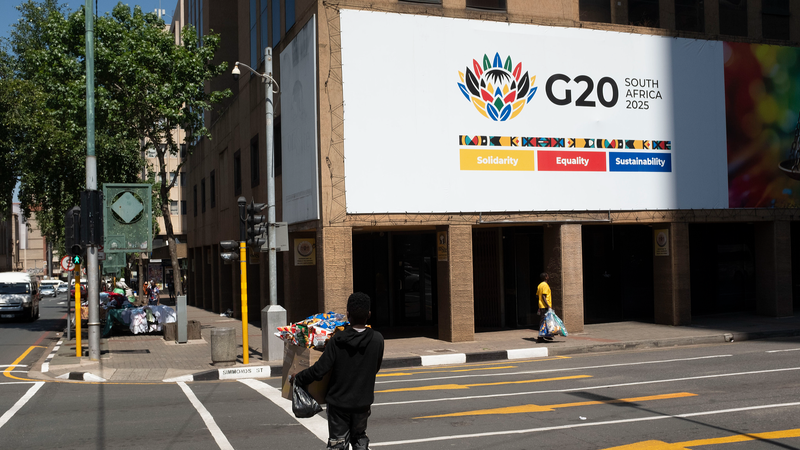Under South Africa's presidency, the 2025 G20 summit opens amid a fragile global recovery. With G20 members accounting for roughly 85 percent of global GDP and 75 percent of world trade, the stakes have never been higher as leaders seek to overcome economic pressures, geopolitical tensions, and calls for reform.
Despite their influence, growth is slowing: the OECD forecasts world GDP growth to ease from 3.3 percent in 2024 to 3.2 percent this year and 2.9 percent in 2026, warning that rising trade barriers and policy uncertainty are weighing on investment.
AI Goes Prime Time
Artificial intelligence takes center stage. In September 2025, the G20’s AI Task Force released a chair’s statement calling for inclusive, ethical, and secure AI development backed by strong data governance and “data free flow with trust.” It urged international alignment on technical standards and broader access to diverse datasets.
Meanwhile, the Chinese premier Li Qiang proposed a global AI cooperation body in July 2025, aiming to boost cross-border innovation and yield more groundbreaking results. The Digital Cooperation Organization also rolled out its AI-REAL toolkit at the G20 Digital Economy and Artificial Intelligence Ministers’ Meeting in Cape Town, offering governments a practical roadmap for assessing AI readiness and guiding responsible policy adoption.
Climate and Green Finance
Climate action and green finance are high on the agenda. As G20 members submit new national climate pledges this year, many have strengthened emissions targets. In September, China announced its 2035 NDCs, pledging a 7 to 10 percent cut in net greenhouse gas emissions from peak levels and a sixfold increase in wind and solar capacity to 3,600 gigawatts.
By the end of August, the national carbon market in the Chinese mainland had recorded a trading volume of 189 million tonnes and a transaction value of 18.1 billion yuan (about $2.54 billion), making 2024 its strongest year since the market’s 2021 launch.
Into a New Era of Governance
When China hosted the G20 in Hangzhou in 2016, growth, innovation, and coordination were the focus. Today, finance governance, technology standards, and climate action dominate the agenda. Earlier this year, China proposed a Global Governance Initiative to give developing countries a stronger voice in shaping international rules.
"Deficits in peace, development, security, and trust are deepening, while existing mechanisms struggle to respond," says Wang Fan, president of China Foreign Affairs University. "Advancing reform of global governance is the only way to bridge these gaps."
Yet tensions linger—between richer and poorer nations, technology powers and emerging states, and over climate finance. For low-income and developing countries, the summit is a rare chance to push for equitable climate support, debt architecture reform, and AI benefits that don’t widen global inequality.
If leaders can forge meaningful agreements, the 2025 G20 summit could mark a shift from growth-centric agendas to a model of openly shared responsibility, setting the tone for a fairer, more resilient global future.
Reference(s):
G20 2025: Can the world break the global governance deadlock?
cgtn.com




